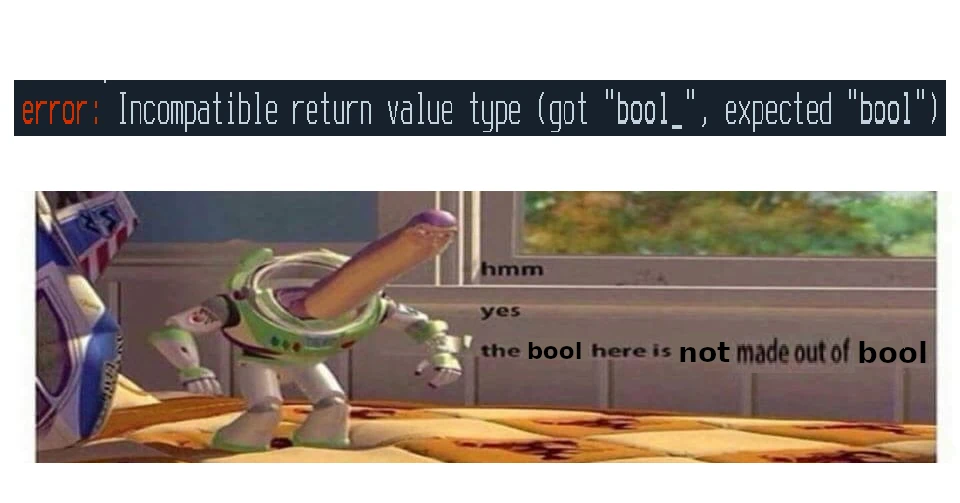this post was submitted on 14 May 2024
311 points (91.2% liked)
Programmer Humor
32386 readers
805 users here now
Post funny things about programming here! (Or just rant about your favourite programming language.)
Rules:
- Posts must be relevant to programming, programmers, or computer science.
- No NSFW content.
- Jokes must be in good taste. No hate speech, bigotry, etc.
founded 5 years ago
MODERATORS
you are viewing a single comment's thread
view the rest of the comments
view the rest of the comments

"1" + 2 === "12"is not unique to JS (sans the requirement for the third equals sign), it's a common feature of multiple strongly typed languages. imho it's fine.EDIT: I did some testing:
What it works in:
What produces a number, instead of a string:
What it doesn't work in:
And MATLAB appears to produce 51, wtf idk
The numeric value of the '1' character (the ASCII code / Unicode code point representing the digit) is 49. Add 2 to it and you get 51.
C (and several related languages) will do the same if you evaluate
'1' + 2.Oh that makes sense. I didn't consider it might be treated as a char